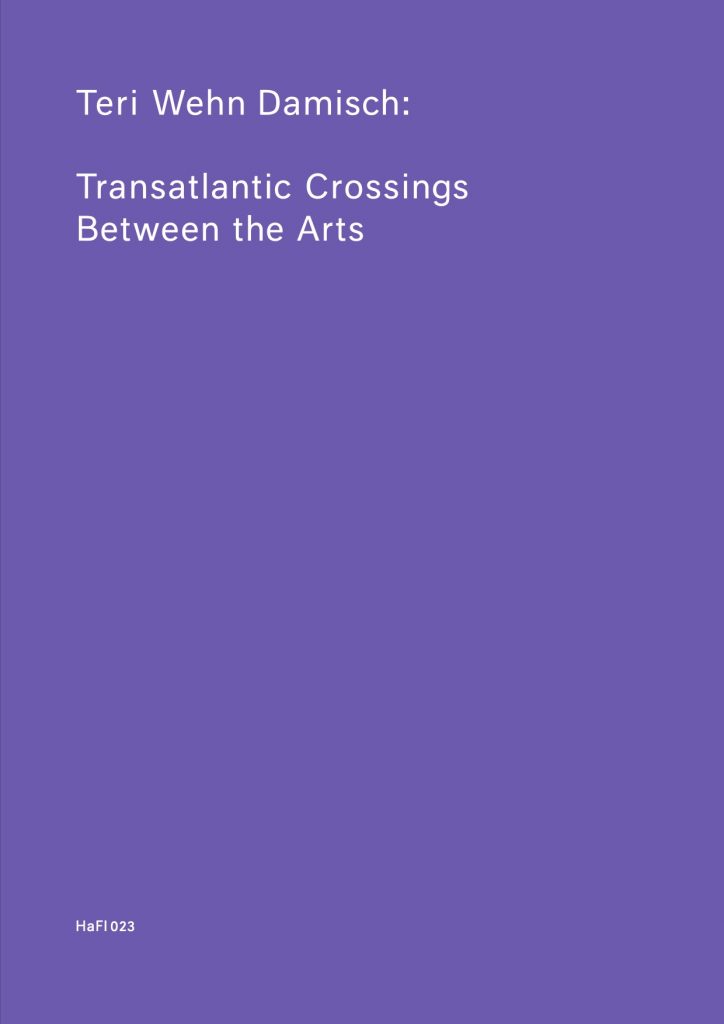HaFI 023: Teri Wehn Damisch: Transatlantic Crossings Between the Arts
HaFI 023 is the result of a first effort to enhance the visibility of Teri Wehn Damisch’s film and television work, organized in 2022 at the Galerie Colbert (Paris) and the Centre Pompidou through a retrospective, an academic workshop and an exhibition. The booklet contains four texts by Teri Wehn Damisch, attending to the conception of her films on artist Robert Morris, photographer Gisèle Freund and anthropologist Françoise Héritier. An essay by Enrico Camporesi examining the creative process behind her film On Snow’s Wavelength (2001) and a study of her portrait dedicated to set designer Alexandre Trauner, by Christa Blümlinger, complete the volume.
The booklet emphasizes the singular pedagogical approach of Teri Wehn Damisch’s documentary films, resulting from her encounters with personalities from the transatlantic world of art and research. The Franco-American director began her career as a television producer in the early 1970s. From the outset, she has been deeply committed to transmitting the cultural, artistic and intellectual spirit of her time, inventing a special setting for each portrait feature. Over the years, she has developed a multi-faceted approach, demonstrating a wide variety of ways to make other people’s words perform.
HaFI 023 can be ordered from Bierke Verlag at a price of 10 euros.
Authors: Christa Blümlinger, Enrico Camporesi, Teri Wehn Damisch, Christian Girier
Editor: Christa Blümlinger
Publisher: Harun Farocki Institut
Language: English / French
Pages: 64 pages
Format: 21 x 29,7 cm
Binding: Softcover
ISBN: 978-3-948546-34-2
Credits:
Graphic: Daniela Burger, www.buerodb.de
Post-editing and proofreading: François Lacire (FR) and Louise Pain (EN) for Gegensatz Translation Collective
This publication has been funded by the Graduate School ArTeC within the Investments for the Future Program of the French National Research Agency [ANR 17 EURE-0008]. With the support of the research centre Aesthetics, Sciences, and Technologies of Cinema and Audiovisual Arts (ESTCA) and the Research Commission of Paris 8 University as well as the Berlin University of the Arts – UdK Berlin/Filminstitut.
